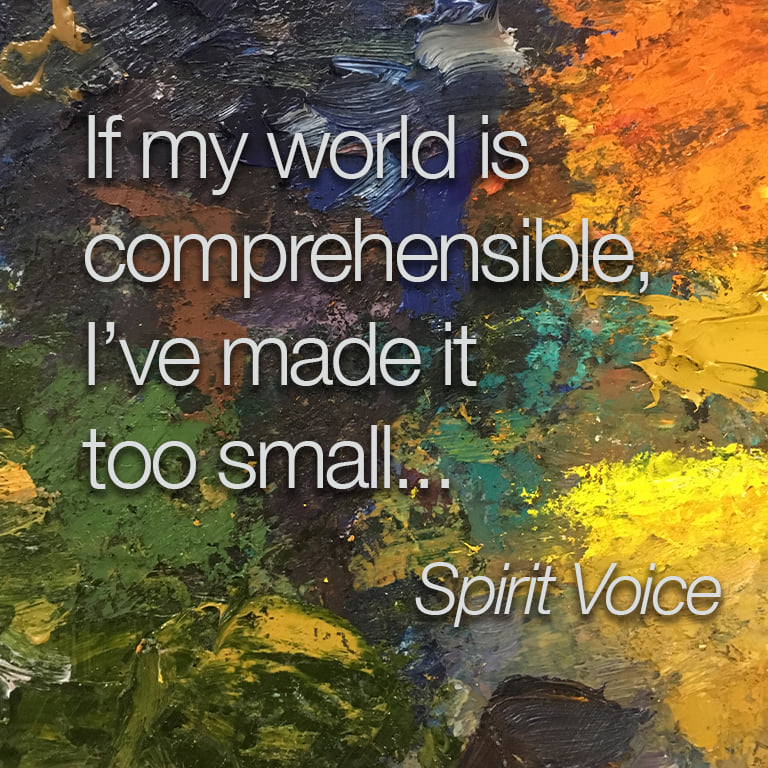
A recent Facebook conversation triggered by the graphic above has shed some light on why I am a spiritual existentialist, and what that means. Before the concluding reply below, I had described my daily morning mediation, which includes a vow to ‘value life’…
‘Value life’ is an interesting ethical statement, one I affirm daily, even though it inevitably and immediately leads to contradiction. To live, I must kill. How can I square that with my ideal of valuing life?
I think that’s pertinent to the original question: What are the limits of comprehension? Try as I might, I can’t round that square ethical peg. I have to decide, and reaffirm my beliefs in spite of uncertainty. That tension between believing and knowing keeps us questioning and reevaluating who, what and why we are. It’s the essence of existentialism.
My spiritual self is always looking into the world and saying there’s more to life than I’ve learned and experienced so far. There’s a love that’s larger then what I can conceive, an idea grander than anything I can imagine, a sensation more vibrant than anything I’ve felt.
Existential Philosophy, Psychology, and Literature / Oct. 17, 2021
Summing up: The heart of spiritual existentialism is the tension between belief, doubt and hope.